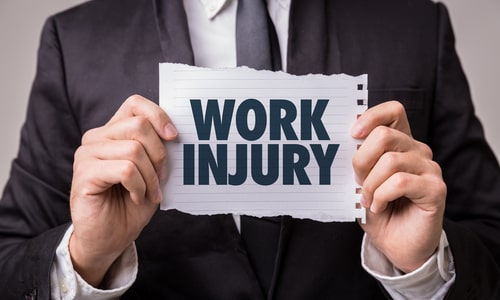Request a Free Consultation | No Upfront FeesSe Habla Español
970-225-2190 |
1-800-664-3151
What Is the Difference Between Personal Injury Law and Workers' Compensation Law?
 Personal injury law and workers' compensation law are two types of law that deal with injuries caused by accidents. Although both types of law involve injuries, there are significant differences between the two. Today, we will discuss the essential differences between the two types of law. Remember, if you have suffered an injury, contact an attorney to ensure your rights are protected throughout the legal process. If you are unsure what kind of attorney to call, this blog will provide that answer.
Personal injury law and workers' compensation law are two types of law that deal with injuries caused by accidents. Although both types of law involve injuries, there are significant differences between the two. Today, we will discuss the essential differences between the two types of law. Remember, if you have suffered an injury, contact an attorney to ensure your rights are protected throughout the legal process. If you are unsure what kind of attorney to call, this blog will provide that answer.
Personal Injury Law vs. Workers' Compensation Law
Personal injury law deals with injuries caused by another party's negligence or intentional actions. For example, suppose someone is injured in a car wreck because of someone else's reckless driving. In that case, the injured individual can file a personal injury lawsuit against the driver who caused the crash in order to seek compensation for their damages. Personal injury law also covers a wide range of accidents, including car crashes, slip-and-fall events, medical malpractice, and product liability.
Meanwhile, workers' compensation law deals with injuries that occur in the workplace. If an employee is injured on the job, they may be entitled to workers' compensation benefits to cover medical expenses and lost wages. Workers' compensation law is a no-fault system, meaning that the injured employee does not need to prove fault or negligence on the employer's part to receive benefits. The employer's insurance company typically pays workers' compensation benefits.
There are several other differences between personal injury and workers' compensation laws. Here are a few:
- Fault – As mentioned, personal injury law requires the injured party to prove fault or negligence on the defendant's part. However, workers' compensation law does not need fault to be established, and benefits are paid regardless of who was at fault for the injury.
- Damages – In a personal injury lawsuit, the injured party can seek compensation for various damages, including medical expenses, emotional turmoil, pain and suffering, lost wages, and more. In a workers' compensation claim, the injured employee is typically limited to medical fees and lost earnings.
- Jury trials – Personal injury lawsuits can be decided by a jury, while an administrative judge typically decides workers' compensation claims.
- Time limits – Sometimes, the time limit for filing a personal injury lawsuit differs from filing a workers' compensation claim. In Colorado, the time limits of both are the same: two years. However, in cases of car accidents, the statute of limitations in Colorado for filing a claim is three years. This may not be the case in other states.
Contact a Fort Collins Personal Injury Attorney
Hopefully, this blog has provided enough information to decide best whether you need a personal injury or workers' compensation attorney. Luckily, the experienced Larimer County workers' compensation lawyers handle both types of law! Call 970-225-2190 for a free consultation today.
Source:
https://cdle.colorado.gov/dwc/injured-workers
https://leg.colorado.gov/sites/default/files/images/olls/1994a_sl_348.pdf

970-225-2190 | 1-800-664-3151
1403 W. 29th St.,
Loveland, Colorado 80538
Greeley:
3835 W. 10th Street, Unit 100,
Greeley, Colorado 80634|
970-460-2220
Longmont:
353 Main Street, Suite A,
Longmont, Colorado 80501|
720-575-0509
Boulder:
4450 Arapahoe Avenue, Suite 100,
Boulder, Colorado 80303|
303-997-2018
Ft. Collins:
123 North College Ave., Suite 160,
Fort Collins, CO 80524|
970-225-2190
Cheyenne:
109 E. 17th St., Suite #6148,
Cheyenne, WY 82001|
307-227-4051 (By Appointment Only)















